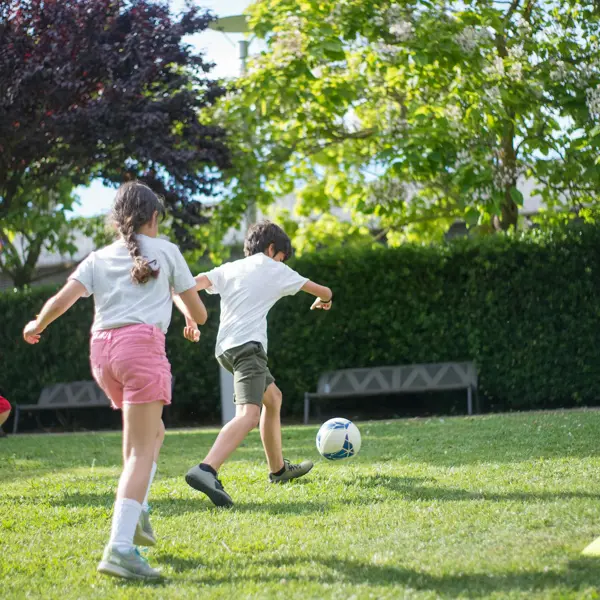This year, Children of Foster Carers’ week is running from 13 – 19 October 2025. It is an annual campaign to celebrate the vital contribution the children of foster carers make to foster care!
In this blog, our Fosterline advisors answer some commonly asked question by potential and current foster carers around fostering with children of their own.
1. Can I foster if I have a young child of my own?
It is possible to foster with young children, although some fostering services may have their own policy regarding any minimum age they require birth children to reach prior to an assessment taking place. It may be helpful to contact other local fostering services if this is the case.
The fostering assessment process will consider the views of all household members, including birth children. It will also look at factors such as lifestyle, routines, commitments and any support network in place. This is to establish that the prospective carer(s) have the time available to care for a vulnerable child, and how any impact on birth children will be managed.
Fostering is recognised as qualifying work for the purposes of free childcare hours in relation to birth children or those for whom they have legal parental responsibility. There is more information about the qualifying criteria and about foster carers who work in addition to fostering who may qualify for free childcare hours in relation to their foster child here.
2. Can a foster child share a bedroom with my birth child?
A young foster baby will often sleep in a crib/cot in the foster carer’s bedroom. Fostering regulations for England called The National Minimum Standards 10.6 states that all foster children over the age of three should have a bedroom of their own wherever possible. It also states that any room share would need the agreement of the local authority responsible and must consider the views of the children, any potential for bullying and history of abuse or abusive behavior and all other pertinent facts.
Room share arrangements between birth children and foster children are unlikely to be agreed by the local authority as the children would not know each other. This could create underlying tensions in their relationships with each other and with their parent/foster carer. Foster children are also likely to move on; to return home, or to an extended family member, or perhaps to their new adoptive family. This means that any room share arrangement may involve several scenarios for a birth child over the course of time as foster children arrive then move on, which could be unsettling. All children within the fostering household need to feel they have a space of their own, for their belongings, for studying and for privacy etc.
3. How will fostering impact on my birth child(ren)?
Fostering can help birth children develop empathy, resilience, and compassion. It can also help children develop flexibility and help enhance their communication skills as they live alongside other children from a diverse range of backgrounds and personalities. Birth children may feel proud of their role and feel a sense of contribution towards helping others. Some may gain an appreciation of their own lives and the circumstances and challenges faced by others. Many birth children form lasting bonds with their foster siblings that in some cases extend beyond the fostering experience.
There will be challenges for some children in sharing their parents’ time and affection, especially if used to being the sole focus. They may need to adjust to new behaviours from foster children and/or be exposed to difficult emotions from foster siblings. They may worry about the wellbeing of the foster child. They may need to adjust to a range of professionals visiting their home on a regular basis for visits/meetings etc.
Strategies for supporting birth children include:
- Maintaining open and honest communication with them.
- Involving them in the process in an age-appropriate way.
- Provide support and resources to help them navigate challenges.
- Celebrate their contribution to the fostering process.
- Maintain family routines to create stability amidst the changes brought about by fostering.
4. What support can I expect from my fostering service in relation to my birth children?
Some fostering services will offer sessions/activities specifically aimed at foster carers’ birth children. Family activities for the whole foster family to attend may also be available: check with your fostering service. If you are part of a Mockingbird support system, your hub carer may organise activities for the whole family, so birth children have the chance to meet children in other foster families. It may also offer flexible support and/or sleepovers to enable foster families to juggle demands and spend one-to-one time with all the children in their care. You can check with your fostering service if any other support provision is available.
Birth children should be included in an age-appropriate way when drawing up any safer care/ family protective care plans. These should be regularly reviewed as the needs of children coming into the foster home may vary, and the needs of birth children will change as they grow. This should cover general household rules and issues such as privacy, access to bedrooms and use of social media, etc. The needs of all household members including birth children should be considered if there is a need for any additional risk assessments.
The supervising social worker will want to regularly speak to birth children when visits are undertaken and seek their views during any foster carer review. If you are subject to an allegation, they may arrange independent support for you and household members including birth children if appropriate. If your fostering service has arranged a membership service for you they are likely to offer discounts on a range of services, and this may include family activities. Check your membership service for details.
5. How will the matching process consider the needs of my birth children?
Approved foster carers have “terms of approval” that reflect your current circumstances and should consider the needs of the household, including birth children. This will specify the number of children that can be cared for, age-range and the type of fostering to be undertaken etc. Suitability to foster is reviewed at least once a year along with the terms of approval and it is important that foster carers let their service know if they feel this needs to be amended. If asked to care for children outside of the terms of approval, for more than 6 working days the terms of approval would need to be amended. The foster carer would need to agree and give written consent.The fostering service must provide a statement setting out whether anyone in the fostering household will have any additional support needs as a result of the change, and how they will be will be met. This change to the terms of approval can then be implemented immediately. Foster carers do not have to agree to change their terms of approval and in the event of a dispute following a foster carer review and attendance at Fostering Panel they have the option to request a review of any decision proposed by the Agency Decision Maker within 28 days of the date of the letter. See here for more information on terms of approval.
Considering the information carefully prior to agreeing to care for a child is particularly important when there are other children in the household. Research suggests it may be helpful to have an age gap between children in the household, but chronological age and levels of development may also differ in children with adverse childhood experiences and may need consideration. Do you have enough information to understand the current needs of the child? Has the service identified any concerns that may impact on other children? Can these be addressed within the Protective Care Plan and any additional risk assessments? As a parent you know your children best and should not feel a need to accept risks or harm that would be unacceptable in a non-fostering family.
Decisions about welcoming children into your home need to be taken as a family wherever possible. When children are part of the decision making there is a greater chance of making a foster child’s time in the home successful. Can you help your child understand enough of the child’s background to make sense of behaviour and any strategies in place? Make sure all children understand the general household rules in place including use of social media. Equipping your child with a response to any questions they may encounter from people outside of the family about children coming and going can also be helpful to ease their worries.
6. What are some helpful things to consider for the foster carer’s own children when a foster child is moving on?
Saying ‘goodbye’ to a foster child can evoke so many different emotions for the foster carer, their own children and for the foster child. There are many different reasons why a foster child may move on. Whatever the reason it is always important to prepare, plan and make space for all the family to share how they are feeling about the changes.
Talk to your children about the foster child leaving your family, answer any of their questions as appropriately as you can and make sure they know that they can always talk to you about anything. You may have identified a trusted person for the child to speak to outside of the family as part of the assessment process if they seem unwilling to discuss with you. Acknowledge their feelings whatever they may be such as sadness, worry or perhaps relief if their relationship with the foster child has been challenging as they may feel guilty about that.
Agree with the foster child any plans to say goodbye (some may not want a party and prefer something low key) and involve children in the planning such as choosing a small gift or writing a card. Foster carers can seek advice about this from their fostering social worker if they are concerned about managing the transition and/or its impact on birth children.
It’s important to be aware of your own feelings as the foster carer and to talk about these with your family within your support network, social workers and wider foster care team. Self-care as a foster carer is essential when trying to support others. Children can pick up on unspoken emotions. Fosterline are here to offer you practical and emotional support and access to counselling if required.




